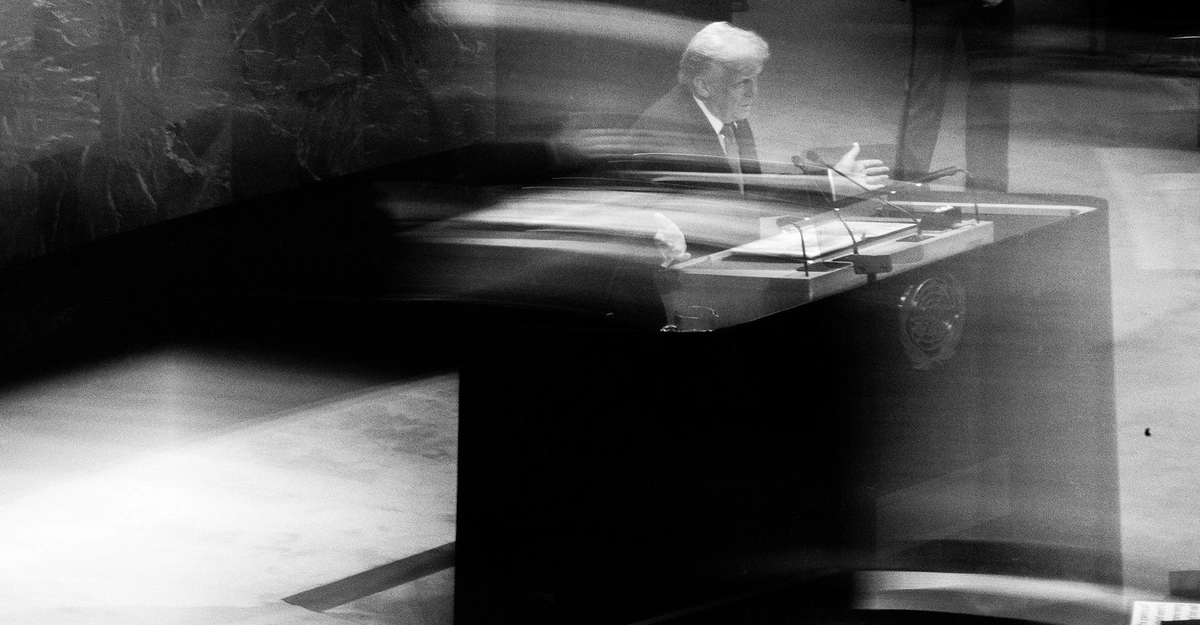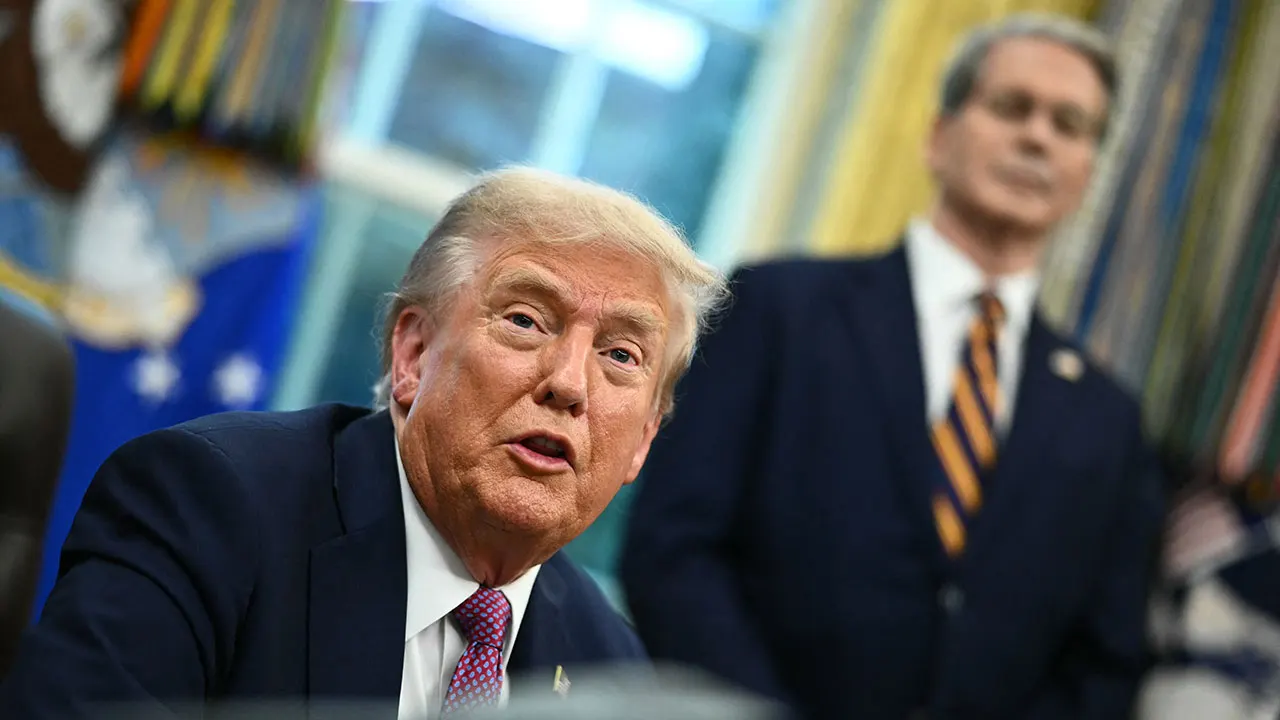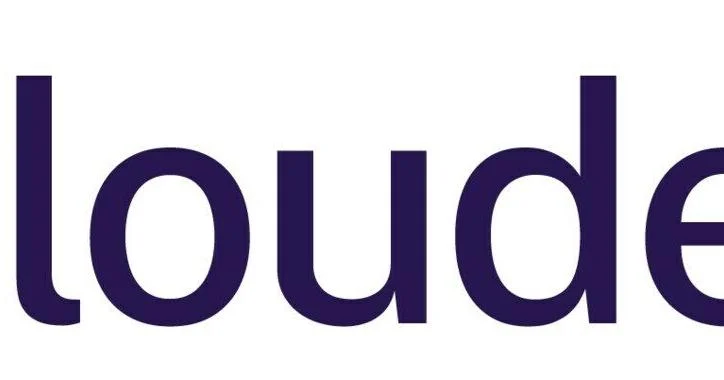
The world laughed at Donald Trump.
Seven years ago, Trump was just a few sentences into his annual United Nations General Assembly address when most of the gathered leaders of the 193 countries represented began to chuckle—and then outright guffaw. A visibly startled Trump had been boasting about his administration’s successes; he had long claimed that other nations mocked his presidential predecessors, and now it was happening to him. Trump later publicly downplayed the moment. But aides at the time told us he was seething.
No one is taking him lightly now.
Trump returned to the United Nations rostrum today for the first time since he reclaimed the White House. The moment underscored how dramatically his relationship with the world has changed. Trump has led a campaign to upend the global order that the U.S. built following World War II. He has bent foreign leaders to his will while antagonizing allies by musing about a return to an age of American imperialism, when the United States could simply seize the territory it wanted. He and his advisers have launched trade wars and aligned themselves with movements that have eroded democracies and supported rising authoritarians.
In his meandering, grievance-filled speech today, Trump belittled the threat of climate change, warned about excessive immigration, and touted his role as global peacemaker even though the wars in Ukraine and Gaza have escalated in recent months. He mocked alliances and the United Nations itself, outlining something of a Trump Doctrine that prioritizes individual nations’ sovereignty and a transactional approach that rewards only those nations that can do something for the United States—or him personally.
“During the campaign, they had a hat, the best-selling hat: ‘Trump was right about everything.’ And I don’t say that in a braggadocious way, but it’s true,” he said. “I’ve been right about everything.”
Trump, in some ways, has withdrawn the United States from the world. He has weakened ties with traditionally close allies, derided globalism and curtailed U.S. soft power by slashing everything from foreign aid to overseas government-funded media. Since returning to office, Trump has heralded America’s exit from the UN’s global health agency, its human-rights council, and its cultural organization. He has also cut funding for a wide array of UN activities, including food assistance and aid to refugees and children. As a result of this major reduction from its biggest funder, the UN has secured funding for only a fifth of this year’s required budget for humanitarian activities, a top UN official said this month.
Matthew Kroenig, vice president of the Atlantic Council, told us that Trump’s approach reflected a Republican Party consensus that global institutions like the UN have long been broken, allowing Russia the power to thwart Security Council measures on Ukraine or enabling decades of General Assembly resolutions critical of U.S. ally Israel.
While Trump has always been suspicious of the United Nations and other organizations of “global governance,” his approach was tempered during his first term by a staff who hoped to exercise American leadership in a more traditional way. In his 2018 address, Trump emphasized his commitment to not just championing American interests but also “standing up for the world.” In his second term, Trump is unapologetically America first, leaving allies scrambling to reorient their global blueprints as he hews to more of a lone-dog approach. Not only is the United States no longer the world’s sole superpower, it is less interested in bringing the world along in pursuit of its priorities.
That is visible in the decision by Canada, France, Britain, and other close allies to move forward with recognizing a Palestinian state, leaving America and Israel ever more isolated. Trump warned against recognition again today, suggesting that it rewards Hamas for its October 7, 2023, terror attack. But he has also privately fumed that Israeli Prime Minister Benjamin Netanyahu continues to expand the war.
European nations, meanwhile, are attempting to provide security aid and guarantees to Ukraine to compensate for the unpredictability of future American support. And other reordering is under way as well. Richard Gowan, an expert on the United Nations at the International Crisis Group, told us that other nations are moving ahead without Washington on issues including the environment and pandemic preparedness. (That strategy won’t work on matters of security, where Washington remains the sine qua non.)
“There was an assumption that Trump was an aberration and that the next president would come back and reset the clock,” Gowan said. “That’s no longer the case. So people are taking it much more seriously this time around.”
Rather than a forum for international cooperation, the United Nations has turned into another arena for global competition. “The purpose is to muscularly advocate the American view and push back against the bad guys,” Kroenig told us of Trump’s approach. (Although Trump in a post-speech meeting with United Nations Secretary-General António Guterres said he was behind the organization “100 percent,” aides have told us he believes that the organization is feckless and easily ignored).
Trump’s shifting strategy for the Ukraine conflict took another turn today when, following a meeting with Ukrainian President Volodymyr Zelensky, he posted on social media his belief that Kyiv could eventually recapture much of its territory from Russia, given Moscow’s economic woes. This was perhaps Trump’s most pro-Ukraine statement yet—he previously largely deferred to Russia in the conflict—and it comes just weeks after he insisted that Kyiv would have to give up territory. But Trump still emphasized that the primary support would need to come from the EU and NATO: Although the U.S. would continue to sell weapons to NATO, it would not increase its aid to Ukraine, and he made no mention of further cease-fire talks.
As Trump spoke, he kept mentioning “peace.” Driven by his desire to win a Nobel Peace Prize, the president has invested heavily this year in brokering peace deals. He repeated his claim today about having ended seven wars, though some of the affected countries dispute his involvement. He also warned European allies that they must stop buying Russian energy before he makes good on his promise to sanction Moscow over its Ukraine invasion. Many in Europe see that challenge as a nonstarter; Russia-friendly EU countries such as Hungary and Slovakia have refused to stop doing business with Moscow, as has Turkey, a key NATO member. Some diplomats feel that Trump knows it will go nowhere but will still use their noncompliance as an excuse to, once more, back down against Vladimir Putin.
Trump’s new tack also means that stalwart U.S. allies are rethinking their economic and security reliance on the United States and finding new partners on climate change and other priorities. Trump today declared that the concept of a “carbon footprint” is a “hoax,” and that climate change is the “greatest con job that’s ever happened to the world.” (China may eventually fill the vacuum on the issue, including in renewable-energy development.) Although no nation can afford to walk away from America’s political and economic might—meaning foreign leaders must woo Trump to get the best possible deal on tariffs—the president’s threats to violate allies’ sovereignty represent a before-and-after moment for countries such as Canada, Denmark, and Panama. Trump also boasted about his recent military strikes against boats that he has claimed were being steered by Venezuelan drug dealers, saying, “There aren’t too many boats that are traveling on the seas by Venezuela.”
The rapid global reordering has left allies unsettled. “This is not a transition,” Canadian Prime Minister Mark Carney said at a Council on Foreign Relations event yesterday. “This is a rupture.”
As Trump was introduced in the famed Turtle Bay assembly hall today, his fellow world leaders applauded. They then took his insults, sitting stone-faced when Trump declared not only his greatness but that their “countries are going to hell.” And only when Trump teased them about a busted teleprompter and broken escalator did they chuckle. They laughed with Trump, not at him.



